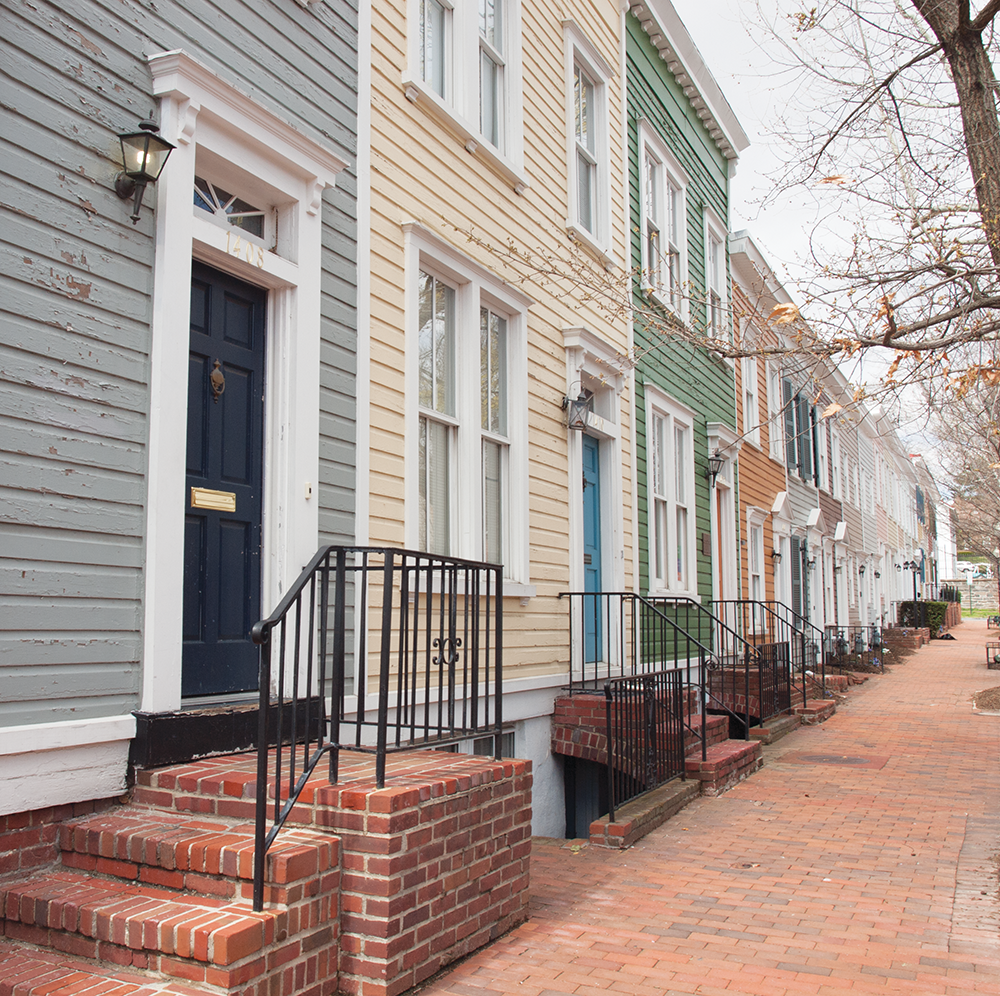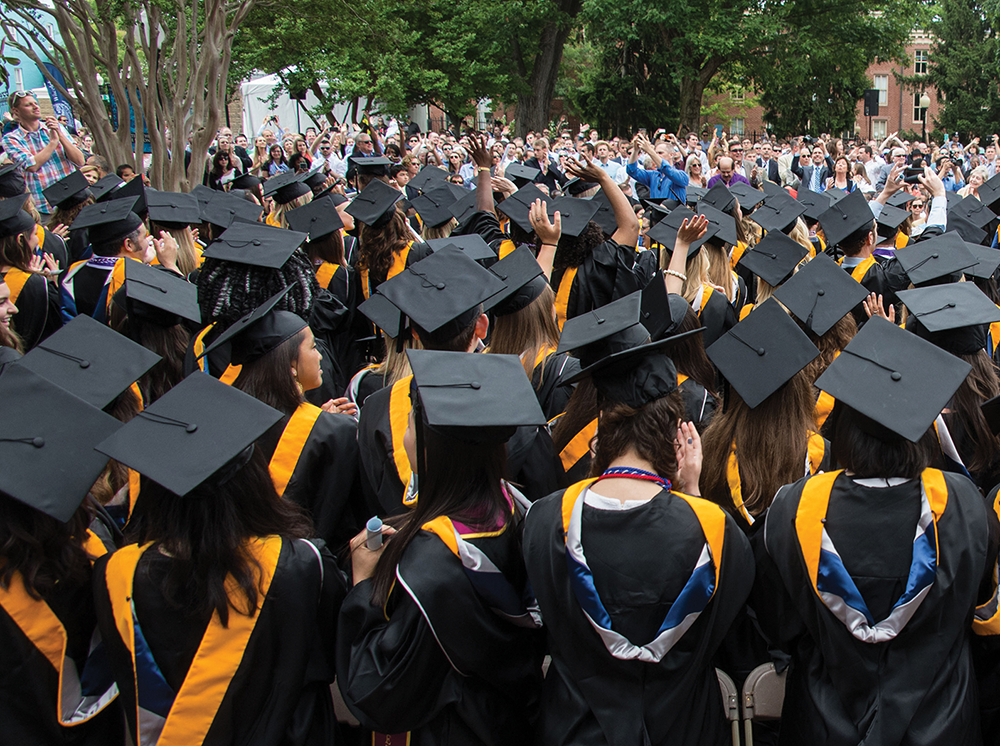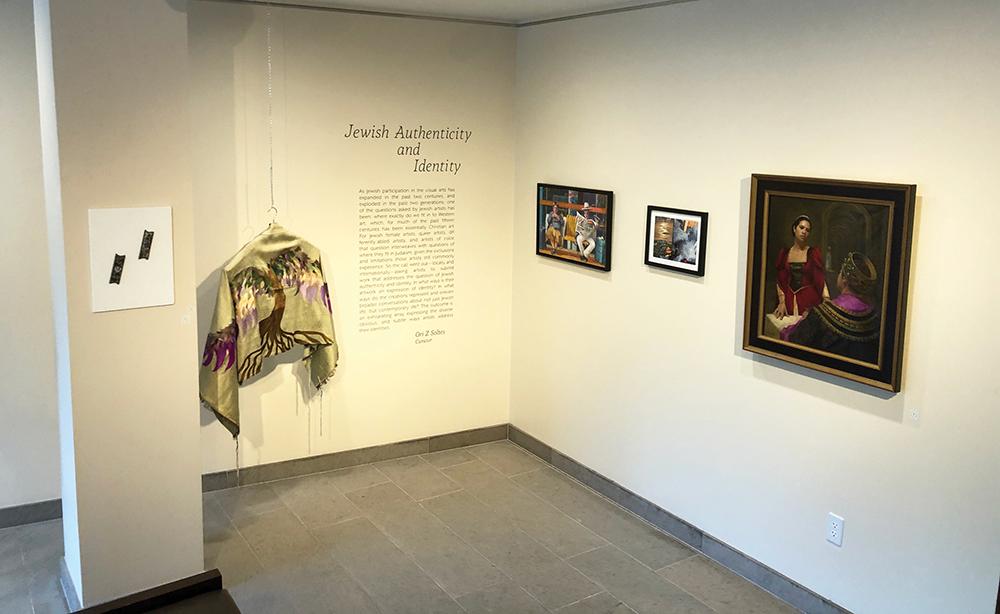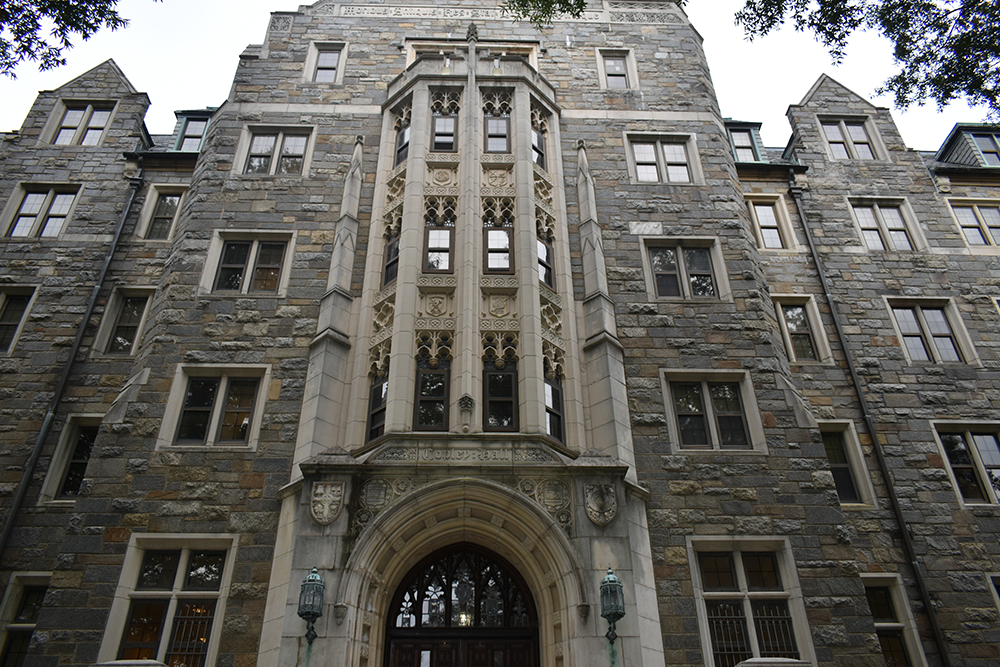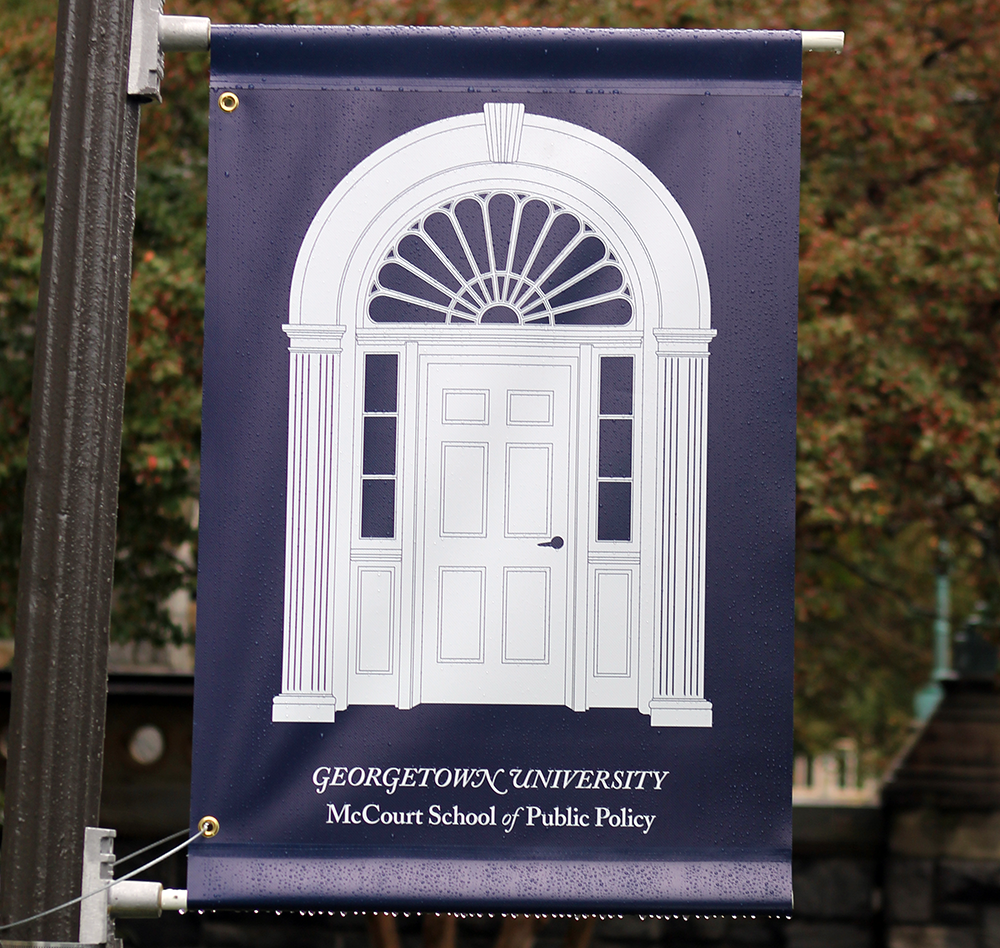Following firm pressure from dozens of faculty members, Georgetown University expanded its emergency stipend for faculty and staff who are incurring extra caregiving costs because of the COVID-19 pandemic.
In a scathing Oct. 19 memo obtained by The Hoya, faculty members slammed the university for failing to prioritize family care responsibilities during the COVID-19 pandemic, labeling the failure as unconscionable. The 75 faculty members who signed the memo demanded the university include consideration of faculty members’ care responsibilities in future planning decisions.
The memo was addressed to University President John J. DeGioia (CAS ’79, GRD ’95), Chief Operating Officer Geoff Chatas, Provost Robert Groves and each of the deans of the undergraduate and graduate schools.
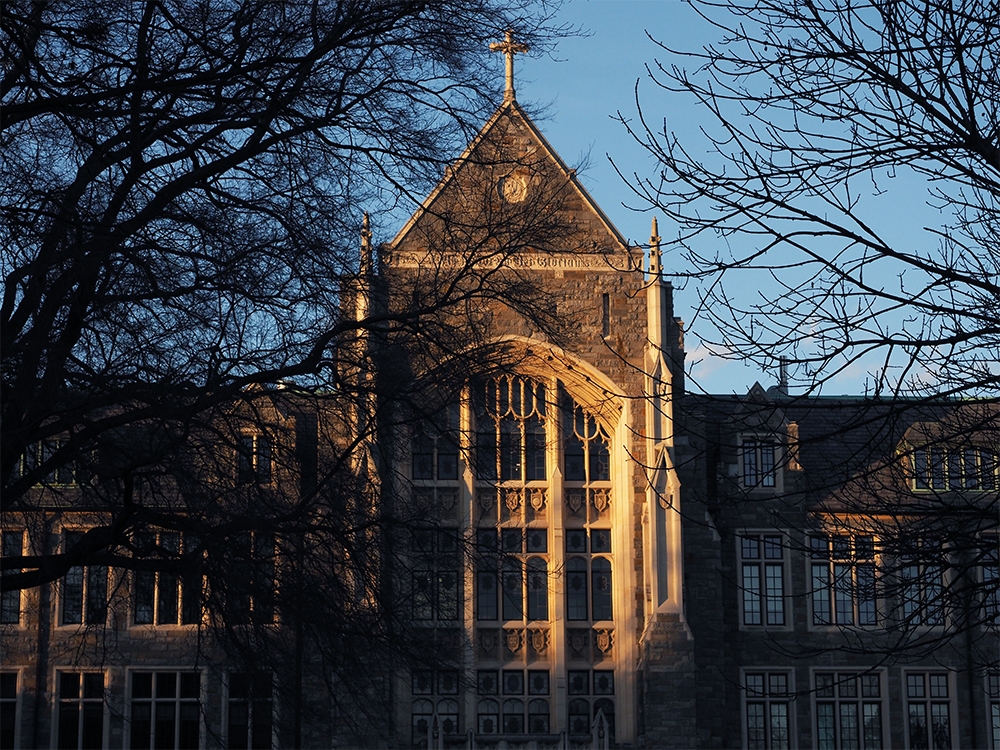
The university responded Oct. 22, announcing the expansion of the GUCares dependent care fund from $1,000 per employee to a maximum of $3,000 per employee through the end of the fiscal year in June 2021. GUCares is an emergency fund that provides support to full-time faculty and staff facing sudden financial loss because of family loss, natural disasters or other crises. The administration expanded the fund in the spring to help faculty deal with dependent care challenges caused by COVID-related closings of school, child care and elder care services.
The email also announced the creation of a new human resources position dedicated to meeting faculty caregivers’ needs, as well as a standing committee to review faculty concerns, meeting two of the demands the original memo had requested.
“The Office of the Chief Operating Officer and the Faculty Senate are working together to convene a standing committee to provide continued input on dependent care support and resources provided by the University,” Groves wrote. “Additionally, The Department of Human Resources will deploy a dependent care resource (DCR) Coordinator by Oct 30. The DCR coordinator will be available to support faculty and staff in dependent care identification, and will serve as a point of contact within Georgetown to communicate and answer questions about the university’s caregiving resources.”
The push by faculty at Georgetown is in line with growing pressure in American universities to recognize the difficult double role of teaching and caregiving that many faculty have been forced to undertake since the pandemic began. Last week, Yale University announced plans to expand paid parental leave for some faculty in response to concerns about over-burdened professors. Faculty at Northwestern University and the University of California, Los Angeles have also launched petitions asking for increased support for faculty who have caregiving responsibilities.
History professor Katherine Benton-Cohen, who helped put together the memo, is the parent of a kindergartener and a 10th grader who have been attending online school since March. Benton-Cohen said the cancellation of her children’s usual summer plans because of the pandemic forced her to spend money on a babysitter and took time away from her research. She decided to draft the memo after hearing colleagues were experiencing similar struggles.
“I felt a real responsibility to speak out, especially hearing from a lot of people trying to manage this who are more vulnerable,” Benton-Cohen wrote in an email to The Hoya. “[Caregiving during COVID-19] contains both short- and long-term implications that we need a comprehensive set of policies to address.”
In the executive summary of the faculty demands, the memo suggests immediate and long-term remedies for university leaders to consider, including conducting a faculty survey on care responsibilities, creating a website to provide communication channels for faculty caregivers and allowing for family leave.
To stress the magnitude and urgency of the cause, the memo cited a Collaborative on Academic Careers in Higher Education national survey which found that 53% of academic faculty are parents of infant or school-aged children, while 12% report being the caretaker for a dependent adult. Extrapolating from the COACHE survey data, the memo estimated that over 400 Georgetown faculty members have part- or full-time child care responsibilities during the pandemic.
“If something else besides childcare were derailing the work of at least half our faculty,
we would surely treat it as the crisis and high priority that it is,” the memo read.
The memo further criticized the university for spending disproportionate resources on resuming research before failing to provide the necessary support for faculty with caregiving duties.
“For lab research resumption, there are apps, committees, websites, redeployed staff, forms to fill out, covid tests two times per week, and research town halls. This is for a constituency that is smaller than the number of people who have care responsibilities,” the memo reads. “Where is the (much easier, frankly) infrastructure and support for addressing their inability to do work, to say nothing of their mental and physical well-being or that of their dependents?”
While Groves did convene a COVID-19 child care task force over the summer to examine how the university could support faculty care responsibilities, none of the committee members were child care experts, and the group lacked a sufficient budget to enact tangible relief, according to the memo.
The memo included anonymous testimonies from faculty members who said the pandemic has made it difficult to fulfill their professional obligations while meeting their family responsibilities.
“These last six months are the first time in my entire life in which I actually questioned my ability to be a working mother with a career,” one professor wrote in the memo.
“I have been placed in the position of choosing between family and scholarship and there is no question about what I choose, but it is unfortunate that a place like Georgetown, with its genuine commitment to educating for a full life, is so content to put its faculty in the position of making that choice,” another professor wrote.
Groves sent an email responding to the memo Oct. 20, and outlined the university’s plans to offer increased caregiving support.
“The closure of schools and regular child and elder care options has created an unprecedented crisis for families – I am humbled by your testimonials and deeply committed to supporting you,” Groves wrote in an email to faculty and staff obtained by The Hoya.
In the Oct. 20 message, Groves said he hopes to reopen Hoya Kids, the university’s campus child care facility for the children of faculty, as soon as public health conditions allow. Groves added that the administration would immediately implement the memo’s recommendation to form a committee to oversee university planning around family care responsibilities and a voice in decision-making.
Benton-Cohen, who has spent hours of her time developing the summer COVID-19 child care task force as well as drafting the petition, said she was happy with the quick administrative response to the memo.
“I am thrilled with the response, and deeply pleased to see Georgetown strive to live up to its high ideals,” Benton-Cohen wrote.








